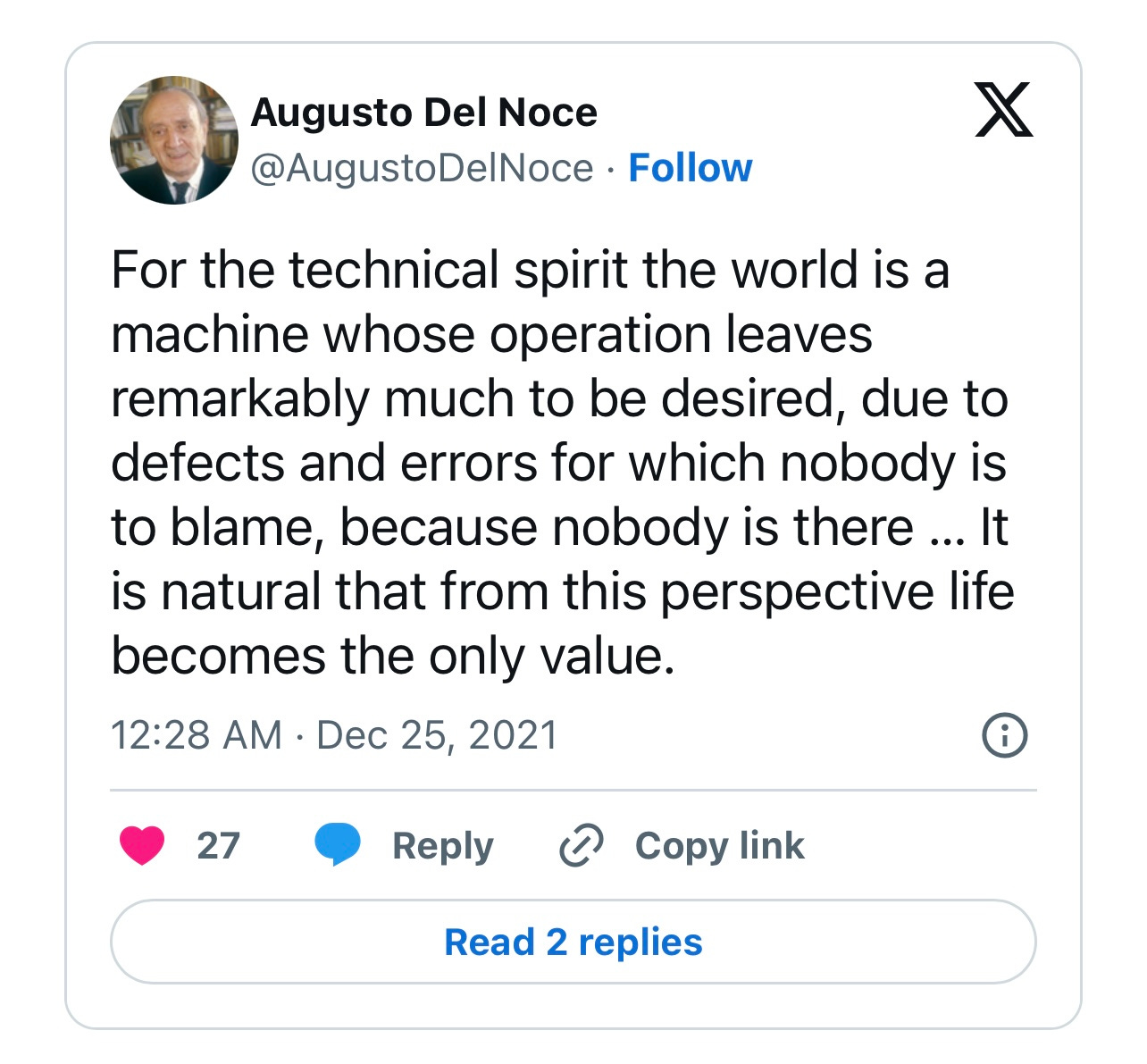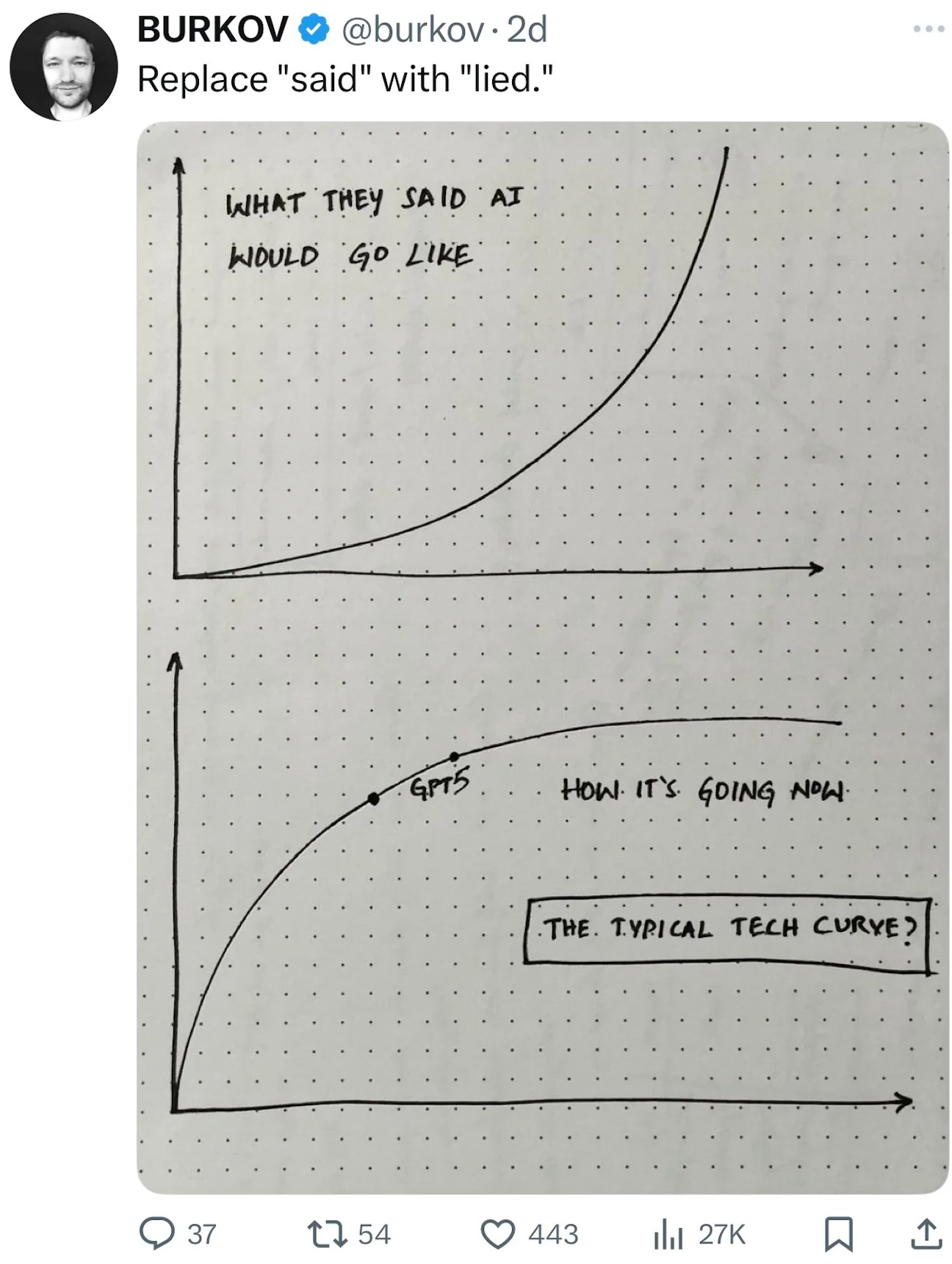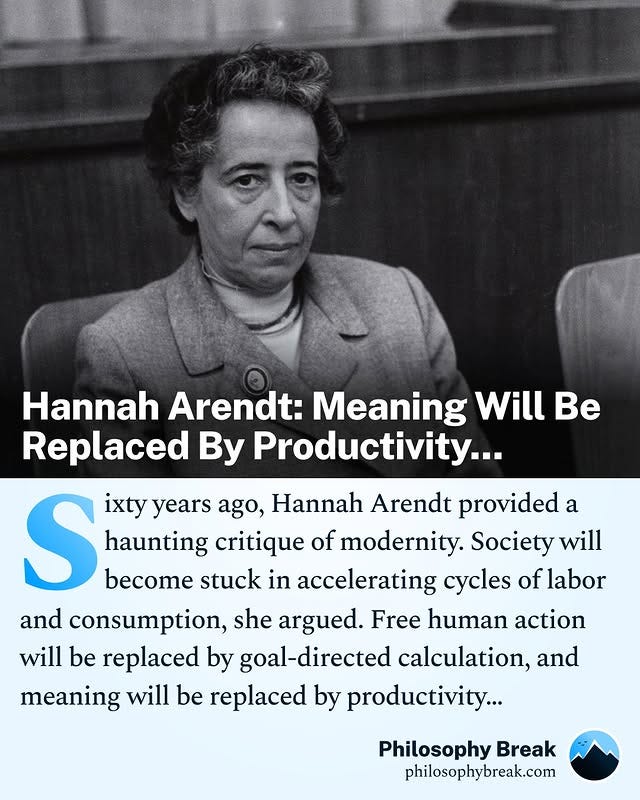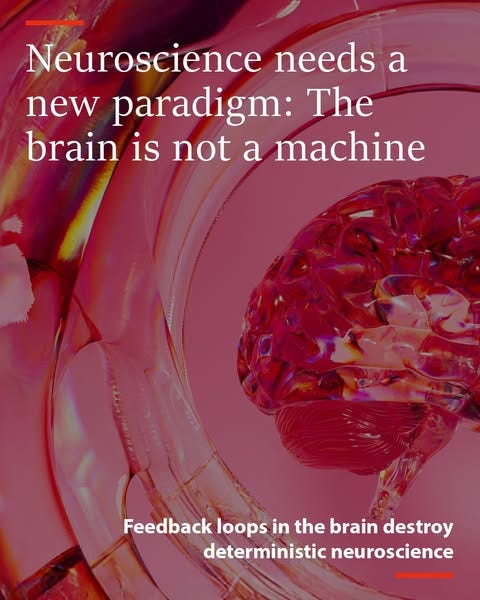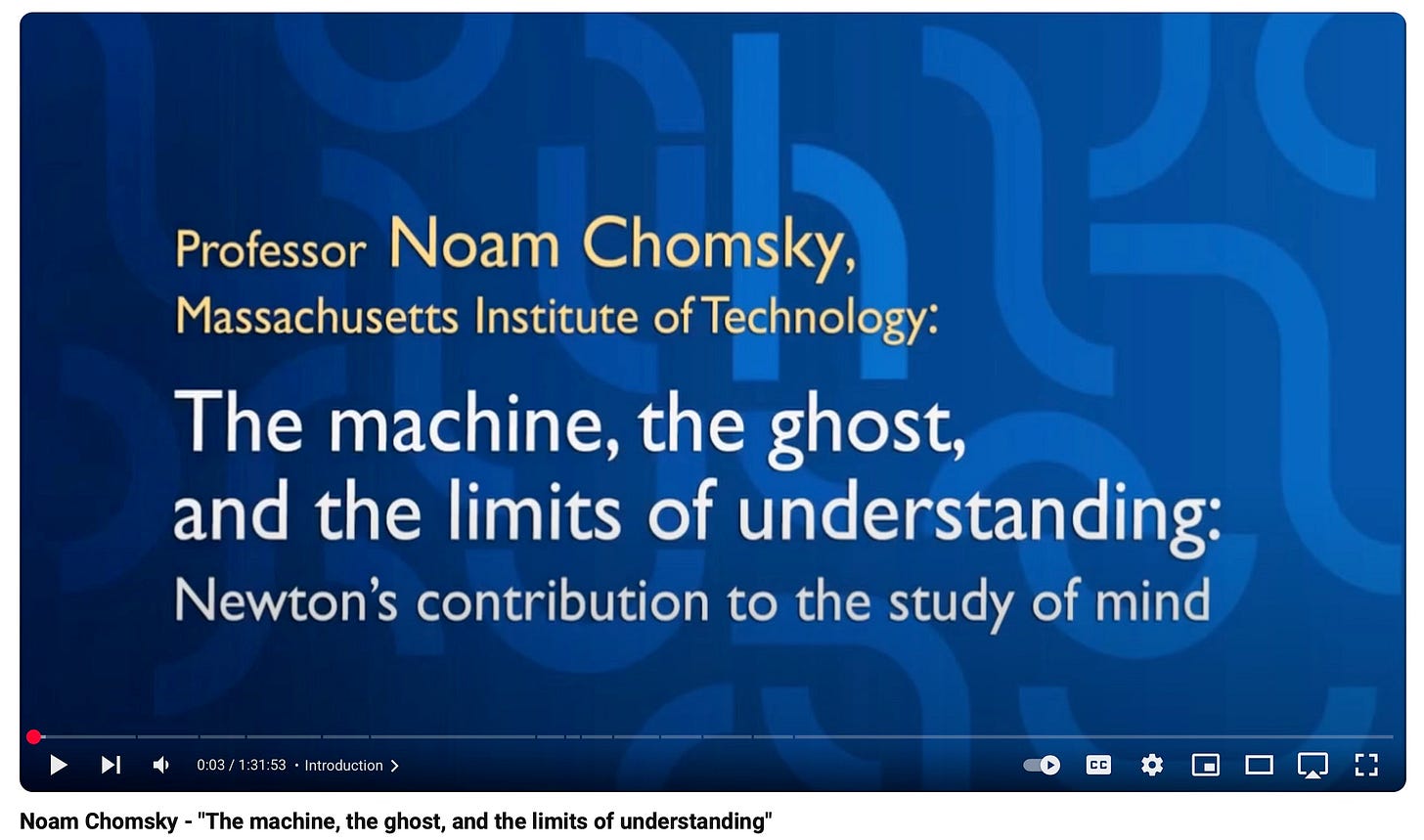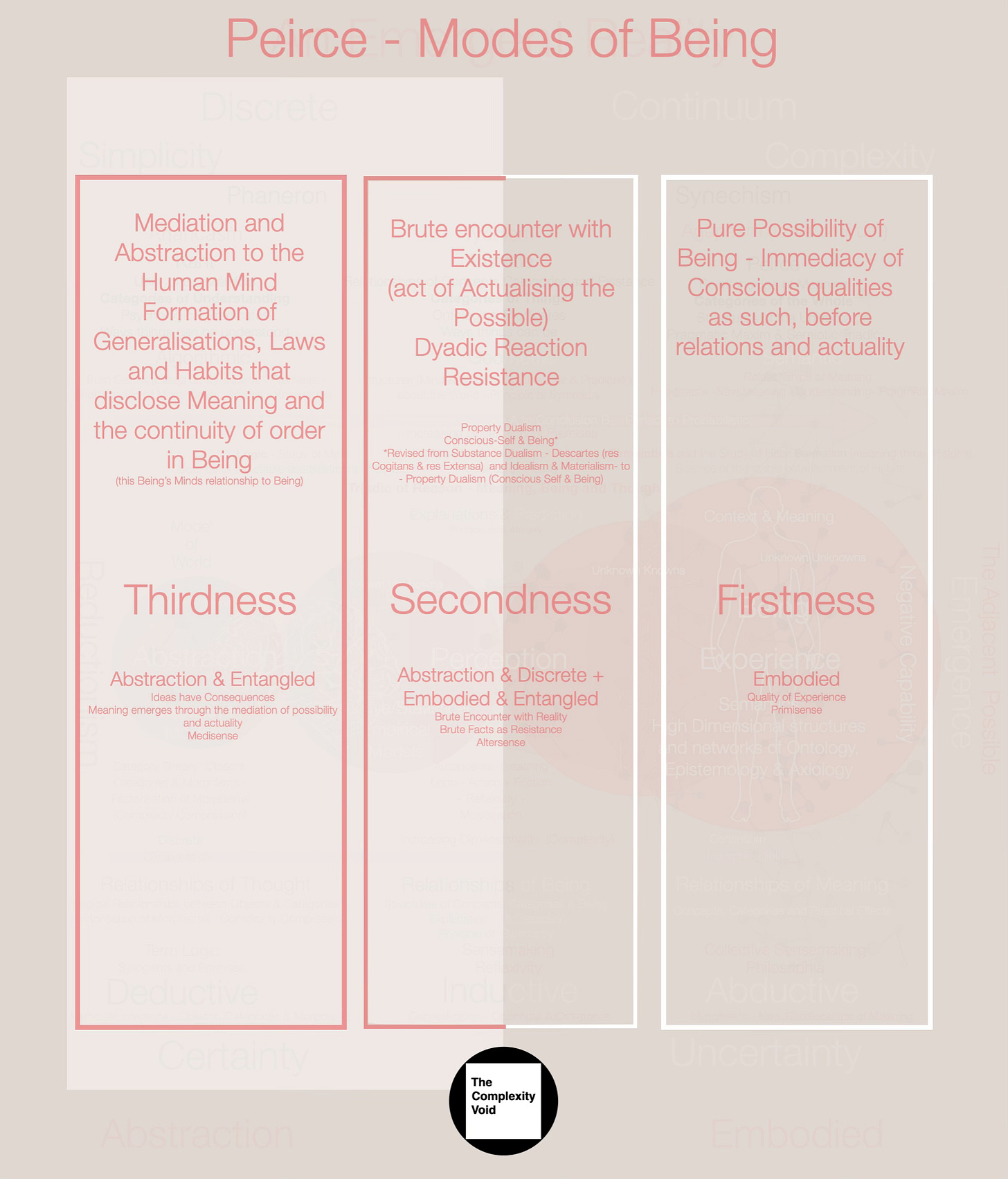The Philosophy of Mechanisation
Primacy of Conscious Man - Reductionism, Determinism, Materialism, and Technocracy
Photo by Mike Hindle on Unsplash
“All nature abounds in proofs ofother influences than merely mechanical action, even in the physical world”…
— Charles Sanders Peirce
“In his physics, Aristotle had come to represent the world as an ensemble of forms constituting an eternal harmony, which he paused to contemplate in order to enjoy it as a spectator.Descartes conceived it as a machine that produces its effects over time and that he intends to know in order not to contemplate it but, rather, to learn how to make it work and how to use it.
The first is an artist’s physics, which abstracts from the needs that are imposed on us by our life on earth, and interprets the world as a beautiful thing to see, so that we may act just like pure intellects and dedicate ourselves to the divine pleasure of contemplation.The second is an engineer’s physics, which, rather than regarding the world as a beautiful thing and becoming aesthetically absorbed in its beauty, regards it as a good thing to possess and strives to possess it for the purpose of satisfying the needs of earthly life.
On one side, a science of the contemplation of the world,on the other side a science of its exploitation.
Starting from here, we understand their two theories of knowledge.
For Aristotle it is a matter of identifying oneself with the world in knowledge; conversely,for Descartes it is a matter of distinguishing oneself from the world in order to affirm oneself apart from it and above it (the thought process that leads to the 𝘤𝘰𝘨𝘪𝘵𝘰) for the purpose of knowing the world from above and using it for one’s own ends” …
— Augusto del Noce
“Behind the technocracy is a belief in materialism and determinism. This is what the ideology is.So if you’re a person of faith at all, if you have any religous beliefs at all, this system is completely anti any of that by design”…
— Aaron Day
[LINK]
Noam Chomsky's talk titled The Machine, the Ghost, and the Limits of Understanding [LINK] that was given at the University of Oslo in September 2011, challenges and debunk’s the prevailing world-view of the intellectual orthodoxy that emerges from Modernism.
“We can look at different levels. One is actually to question authority. One would no longer look up what Aristotle said in order to find out how the world works. Let’s investigate it ourselves. The second is, obviously, the focus on observation. The third, I guess, is to put forward a hypothesis that were tested. Galileo was testing Hypotheses for much of his life, particularly in relation to mechanics. And the fourth was a suspicion that ultimately the World was a “kind of machine” or nature was a Machine. When Galileo said the “book of nature” was written in the language of mathematics, that’s very close to a mechanical idea of nature which was developed enormously by Descartes.As far as Descartes was concerned, all of nature was mechanism including animals and including our body’s, and we were “ghosts in these machines”.And of course, that climaxed in Newton, the whole idea of the Universe being a great huge clock of intermeshing parts”…
— Raymond Tallis[ LINK ]
The Anthropomorphism of Reality (Theology, Philosophy and Metaphysics) that was explored in Schism [LINK] and orientation towards the Primacy of Human Consciousness [LINK] (e.g. Scientism [LINK], Gnosticism [LINK], Cartesianism [LINK], Nietzschean Perspectivism [LINK] ) and Primacy of Man [LINK] (e.g. Marxist Theology)).
The Cartesian World View where the Mind [LINK], Body [LINK] [LINK] and World [LINK] were literally Cartesian Mechanical Machines [LINK].
“In his physics, Aristotle had come to represent the world as an ensemble of forms constituting an eternal harmony, which he paused to contemplate in order to enjoy it as a spectator.Descartes conceived it as a machine that produces its effects over time and that he intends to know in order not to contemplate it but, rather, to learn how to make it work and how to use it.The first is an artist’s physics, which abstracts from the needs that are imposed on us by our life on earth, and interprets the world as a beautiful thing to see, so that we may act just like pure intellects and dedicate ourselves to the divine pleasure of contemplation.The second is an engineer’s physics, which, rather than regarding the world as a beautiful thing and becoming aesthetically absorbed in its beauty, regards it as a good thing to possess and strives to possess it for the purpose of satisfying the needs of earthly life.On one side, a science of the contemplation of the world,on the other side a science of its exploitation.Starting from here, we understand their two theories of knowledge. For Aristotle it is a matter of identifying oneself with the world in knowledge; conversely,for Descartes it is a matter of distinguishing oneself from the world in order to affirm oneself apart from it and above it (the thought process that leads to the 𝘤𝘰𝘨𝘪𝘵𝘰) for the purpose of knowing the world from above and using it for one’s own ends” …
— Augusto del Noce
It was a mental structure perspective of Reality anchored in the Primacy of Human Consciousness and Logic (i.e. Study of Thought) that was increasingly leading to a view of Reality anchored in more and more Instrumental Reasoning [LINK].
“Always and everywhere,managerial power seeks to expand and to centralise without limit. After managerialism conquers one organization or sector, new ground must be found and seized. If no supply of new managerial jobs exists, they can be created throughsocial engineering—the top-down reordering of existing social, moral, and economic structures”…
— Twilight of American Democracy? N.S. Lyons
[LINK]
[LINK]
Refer - How Engineering replaced Politics [LINK]
Reason was a key idea of the Enlightenment (e.g. Temples of Reason [LINK], Cult of Reason [LINK] ) that equipped Man to use his own judgment to think (e.g. “Cogito, ergo sum" - Descartes), determine what was right and wrong (e.g. Marx - Legal Positivism [LINK]) , and ultimately transform the Material World (e.g. Marx - Historical Materialism [LINK]) and liberate (e.g. Nietzsche) himself.
“There is a commonly held view that the arrival of Modernism represented the liberation of Man.A liberation from the transcendent
including traditional moral values and religion (refer to Nietzsche).A liberation from the Human Condition
that was inherent within the Contingent Being of Man (refer to Artificial General Intelligence, Trans Humanism, Scientific Gnosticism (Scientism), Nietzschean Übermensch, Nietzschean Will to Power).A liberation from the intolerable conditions and suffering of the Material Realm through attaining a Consciousness - a Gnosis
(refer to Gnosticism including Modern Gnosticism, Trans Humanism, Geo-Bio-Genetic-Engineering, Cartesian Mechanical Machine World View, Heidegger’s Technology Enframing (Bestand - Standing Reserve), and Jacques Ellul’s Technology Society & System).A liberation from an independent objective Reality (refer to the Theology of Marxism
(i.e. a power-directed system of thought), Nietzsche’s Theory of Perspectivism, Saussurean Dyadic Semiotics, Jean Baudrillard’s Post-Modern Simulacra, Simulation and HyperReality).The material manifestation of this idea is ever-present in various Revolutions that have occurred across the World post the arrival of Modernity including inter alia the French, Russian, and Chinese variants.
Idealism & Materialism - Dialectical Materialism, Praxis, Reflexivity, Historical Materialism and a perpetual OODA Loop of man-made change and transformation.
A City of Man (Civitas Hominis) without a City of God (Civitate Dei).
Man as God”…
— The Complexity Void
It reflected a rejection of custom, tradition, history [LINK], and authority (e.g. Church [LINK])
Conscious Man was empowered to transform the nature of Reality (e.g. Hegel’s Second Nature) through embracing rules of abstraction and the application of instrumental reason.
A Revolution of the Mind [LINK], the emergence of the Individual [LINK] and human freedom - a thinking conscious being [LINK].
The application of Scientific Instrumental Reason to Technology to create a Technological Society.
“The essential element of totalitarianism, in brief,lies in the refusal to recognise the difference between “brute reality” and “human reality” so that it becomes possible to describe man, non-metaphorically,as a “raw material” or as a form of “capital.
Today this view, which used to be typical ofCommunist totalitarianism, has been taken up by its Western alternative,the technological society”…
— Augusto del Noce
World as a Machine, Mind as a Computer, Cells as Machines, Body as a Machine, Intelligence as Computation, Geo-Engineering, Bio-Engineering, Genetic Engineering, Algorithmic Management, Technology Society, Technology System, Artificial General Intelligence, Algorithmic Governance, Algorithmic Money, etc.
“David Hume's 'The History of England.' It's, of course, a chapter on the Scientific Revolution and, in particular, on the crucial role of Isaac Newton, who he describes as 'the greatest and rarest genius that ever arose for the ornament and instruction of the species.'Hume concluded that Newton's greatest achievement was that while he seemed to draw the veil from some of the mysteries of nature, he showed at the same time the imperfections of the mechanical philosophy and thereby restored nature's ultimate secrets to that obscurity in which they ever did and ever will remain”…
— Noam Chomsky: The Machine, the Ghost, and the Limits of Understanding
The narrative of building a Technology Society [LINK], Technology System [LINK], a Technocracy [LINK] based on Human Cartesian [LINK] Logic (i.e. Study of Thought), Semiotic Mechanical Machines (Computers) [LINK] (Refer - How Aristotle invented the Computer [LINK]) and a Nietzschean Will to Power [LINK] to transcend God ( e.g. Theology of Marxism), Nature ( e.g. genetic, bio and geo engineering) and Human Being ( e.g. Transhumanism).
“The mechanical philosophy, of course,was the guiding doctrine of the Scientific Revolution.It held thatthe world is a machine, agrander version of the kind of automatathat stimulated the imagination of thinkers of the time, much in the way programmed computers do today.
They were thinking of the remarkable clocks”…
— Noam Chomsky: The Machine, the Ghost, and the Limits of Understanding
[LINK] - Are Humans really software to be programmed? - Are cells really mechanical machines? [LINK]
The pursuit of a Theory of Everything [LINK] where the human intellect had unbounded rationality — limitless explanatory power [LINK] — as we accelerated our progressive long march forward [LINK] to the Singularity [LINK] and the Omega Point [LINK].
[LINK]
“There is a familiar view that the early Scientific Revolution, beginning and through the 17th century, providedhumans with limitless explanatory power, and that conclusion is established more firmly by Darwin's discoveries, the theory of evolution”…
… “There's a corollary: the corollary isridicule ofwhat's called by many philosophers 'Mysterionism.' That's the absurd notion that there aremysteries of nature that human intelligence will never be able to grasp”…
— Noam Chomsky: The Machine, the Ghost, and the Limits of Understanding
The notion that Computation is Intelligence [LINK].
[LINK]
The Cartesian Dualism [LINK] that is central to Modern Scientific Truth Claims [LINK], which are anchored in conceptual abstraction [LINK] and reductionism [LINK].
[LINK]
A mode of Being [LINK] that 20th Century Philosopher Martin Heidegger [LINK] considered a secondary form of consciousness (i.e. Vorhandenheit (Present-at-Hand) in contrast with Zuhandenheit (Being-Ready-to-Hand)). [LINK]
“The mechanical philosophy was shattered by Newton, as Hume did,and with it went the notion of understanding of the world that the Scientific Revolution sought to attain.And the mind-body problem also disappeared,and I don't believe has been resurrected, though there's still a lot of talk about it. Those conclusions were pretty well understood in the centuries that followed, they've often been forgotten today”…
— Noam Chomsky: The Machine, the Ghost, and the Limits of Understanding
The notions of Materialism [LINK], Reductionism [LINK], Determinism [LINK] as axioms that underpin Modern Science [LINK], Marxist Theology [LINK], and the Scientific Revolution.
[LINK]
The notion of the Mind as a Machine [LINK] and the reducibility of language to behaviourist and computational models.
[LINK]
“We live on an island surrounded by a sea of ignorance. As our island of knowledge grows, so does the shore of our ignorance”…
— John Archibald Wheeler
The Hubris [LINK] of certainty and absolute Human comprehension despite all the complexity and emergent qualities of Reality.
“I think it's fair to conclude that the hopes and expectations of the early Scientific Revolution were dashed by Newton's discoveries, which leaves us with several conclusions.One conclusion, actually reinforced by Darwin, is that while our cognitive capacities may be vast in scope, they are nonetheless intrinsically limited. Some questions that we might like to explore may well lie beyond our cognitive reach; we may not even be able to formulate the right questions. The standards of success may have to be lowered once again, as has happened before. They varied dramatically with the collapse of the mechanical philosophy”…
— Noam Chomsky: The Machine, the Ghost, and the Limits of Understanding
An absence of Negative Capability [LINK].
An inversion in the nature of Human Being [LINK] [LINK] & Human Reality vis-à-vis Brutal Reality (Del Noce) anchored in a Philosophy of Mechanisation.
“Technique has penetrated the deepest recesses of the human being. The machine tends not only to create a new human environment, but also to modify man's very essence. The milieu in which he lives is no longer his. He must adapt himself, as though the world were new, to a universe for which he was not created.He was made to go six kilometers an hour, and he goes a thousand. He was made to eat when he was hungry and to sleep when he was sleepy; instead, he obeys a clock. He was made to have contact with living things, and he lives in a world of stone.He was created with a certain essential unity, and he is fragmented by all the forces of the modern world”…
— Jacques Ellul
A Modern and Post-Modern failure to recognise the limits of Science, reductionist analogies of the Mind and Human Understanding [LINK].
[LINK]
A failure to recognise the different modes of Being [LINK] and at the same time the Unity of Being and Univocity of Being.
A Simulacra of Being [LINK] where the map was increasingly attempting to replace the territory. [LINK]
[LINK]
The ontological philosophical errors and category mistakes of liberation ideology [LINK] [LINK] that had become endemic [LINK] as Western Civilisation had increasingly embraced Marxist Theology [LINK] - the notion of Man as God [LINK].
A modern Marxist theory of knowledge (e.g. Scientific Socialism [LINK]) that is the antithesis of Aristotle.
Rather than identifying oneself with the world in knowledge, it was now a matter of transcending the natural world.
The affirmation of oneself apart from it [LINK] and above it [LINK].
“Thus, the concept of reflexivity yields a "shoelace" theory of history.
It must be recognised that the shoelace theory is a kind of dialectic.It can be interpreted as a synthesis of Hegel's dialectic of ideas and Marx's dialectical materialism.Instead of either thoughts or material conditions evolving in a dialectic fashion on their own,it is the interplay between the two that produces a dialectic process” …
— George Soros, The Theory of Reflexivity
A gnosis [LINK] and alchemic thought process (Dialectical Materialism [LINK]) that leads to the cogito (a Primacy of Human Consciousness [LINK]) that enables the Primacy of Man (Theology of Marxism [LINK]) to transcend nature & created Being (i.e. God as the Creator) and use the material World as a means for one’s own end [LINK].
“The idea of relativity early was expressed by the Scientific Socialists and became a part of the basic understanding of the dialectical process of nature.To the dialectician, all unity is the combination of contradictions, the result of diverse strains. Society, rocks, cabbages, ether waves, chemical solutions, buildings, and the macrocosm itself, all these, large and small, are the resultant of opposing forces. Each unity is composed of opposites and will break up into opposites.To view things in constant movement, to see them as the result of constant movement, to mark the movements as contrary and conflicting, this is the dialectic method.The dialectician tries to see the relation of each part to every other part, and of each part to the whole, as their mutual relations evolve from moment to moment”…
— XVII. Scientific Socialism, The Conquest of Power, Albert Weisbord (Note - ideas that rest upon Marxist ideology foundations)
[LINK]
Endemic Modern Gnosticism [LINK], Instrumental Reasoning [LINK] and Marxist Theology [LINK].




